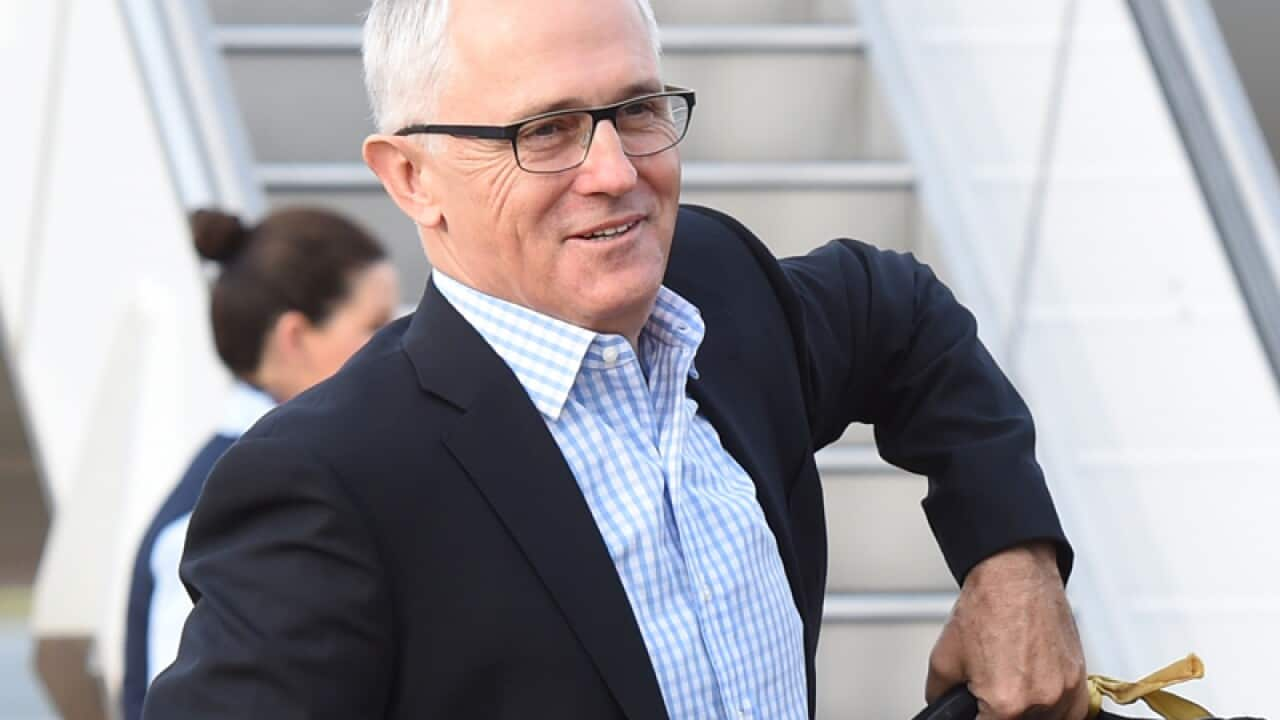In a week in which the tragedy of the Paris attacks coloured all political coverage and events, the Prime Minister found himself in the midst of a globe-traversing power summit trip. It allowed him to be seen with major leaders and also deliver messages back home. But with Malcolm Turnbull away, disgruntled and sidelined (the latter causing the former) Liberal MPs have challenged the Prime Minister’s leadership in a manner which highlights how fractured is the current parliamentary Liberal Party.
The low bar for Malcolm Turnbull to get over based on the performance of his predecessors has once again helped his cause this week. At some point voters will realise speaking like an adult whose first instinct is not to try to scare the beejezus out of people is something we should expect and not be astonished to see.
The Paris attacks were chilling to observe from afar and impossible for any leader to ignore. But while the first instinct of ramping up the rhetoric to sound tough is what we would have expected to hear under Tony Abbott, Malcolm Turnbull took a much more considered approach.
He told journalists during the APEC conference in Manilla of the response to the attacks through increased military action in Syria that while such a move with large numbers of troops could see military victories the question remained “what happens after that and when they come home?”
He noted that “the military dimension is of course, extremely important and it is being... escalated. But the solution longer term will restore stability to Syria and that will enable refugees to go home to their homes, which is where they want to go, has to be essentially a political one”.
The lack of war-hawk rhetoric certainly makes for a different tone from what we know we would have heard from the former Prime Minister – Turnbull’s line certainly doesn’t fit well on a News Corp tabloid front page.
Tony Abbott, writing in The Australian, actually showed us how he would have reacted – by dialling up the fear, making clear that the issue was Islam, and that the solution was more troops.
And as for the worries about what to do after the troops have left Syria and Iraq? Abbott only suggested that “No one should want to rush more forces to a region that’s a witches’ brew of danger and complexity and where nothing ever has a happy ending”.
But still, good on us for having a go, I guess.
What is more interesting however is that Tony Abbott since his dumping has not gone quietly at all. Morphing more and more into a pathetic version of Kevin Rudd during his time as dumped PM, Abbott is going out of his way to make clear his views are diametrically opposed to Turnbull’s.
In reality the actual foreign policy under Turnbull is currently no different to that under Abbott, and there is little sense that Australia under Turnbull will be any less likely to turn down a request for more troops or planes from the USA or for a frigate from France.
The main difference at the moment is that at least under Turnbull Australia is unlikely to go begging to the USA to be asked to do more militarily.
But Abbott’s voice is just one of a number of the conservative wing of the party who in no way see it is their duty to keep quiet over their dislike of Turnbull’s leadership.
This week Tasmanian MP Andrew Nikolic and former Defence Minister, Kevin Andrews joined with Abbott in questioning Malcolm Turnbull’s decision to dump the Minister for Immigration, Peter Dutton, from the National Security Commission.
In a week after the Paris attacks and when Attorney General George Brandis has suggested we “are at war” with ISIS, it is extraordinary that members of the government would challenge the Prime Minister’s handling of national security.
In the past even were the opposition to have done such a thing at such a time it would have brought rebukes about politicising a tragedy. But this week the ALP have been able to weigh in on the debate by agreeing with the Prime Minister’s critics.
It’s doubtful that anyone in the ALP, or indeed anyone outside of the conservative rump of the Liberal Party, thinks Australia would be safer were Peter Dutton to be on the National Security Committee, but given the Minister for Immigration is head of the paramilitary organisation that is Australian Border Force, it does seem odd that he is not.
It highlights that Turnbull remains saddled with the Abbott Prime Ministership – both in terms of policies such as Border Force and personnel – and that he currently lacks the strength to pull these rogue MPs into line.
The fight is not really about national security, but the Liberal Party. That they clearly have no qualms in voicing their disagreement with the Prime Minister over a normally off-limits issue such as national security shows how worried they are that Turnbull is taking the Liberal Party away from what they view as its conservative base.
And in the fight for the direction of the Liberal Party, the hardline conservatives are more than willing to sacrifice government unity.
With stratospheric preferred PM ratings, Turnbull does not need to worry greatly about rustled jimmies of the likes of Andrews, Nikolic, Abetz or even Abbott, but should he begin to stumble, expect their voices to become ever louder.
Share




